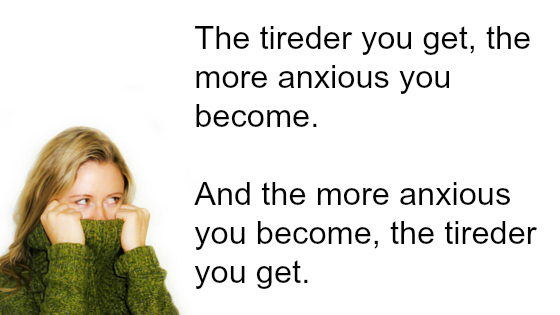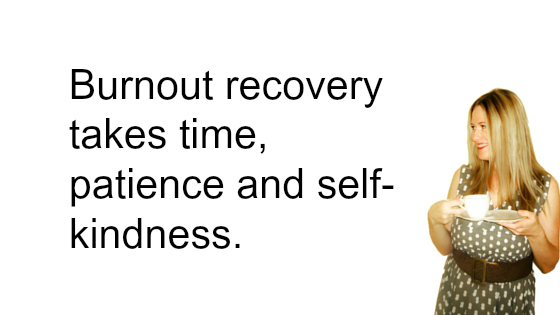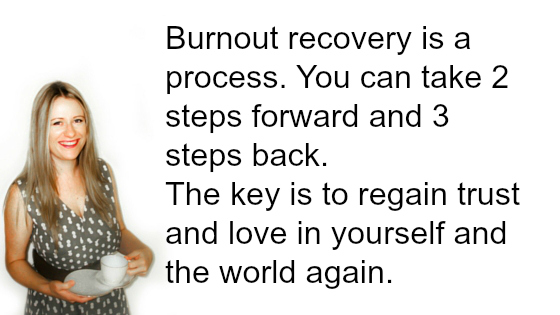How does anxiety cause exhaustion? Do these symptoms feel familiar – fatigue, exhaustion, always tired? Find out how you can heal burnout caused by anxiety.
When anxiety has controlled your life for a long time, it’s only natural that fatigue and exhaustion will catch up with you.
Look online and you can read anywhere about the scientific stuff such as the fight/flight response and how adrenaline kicks in during times of peak stress – this blog post will talk about the energetic impact of anxiety on your aura, and give you tips on how to become truly happy again.
Related: Space between your brain cells meditation

And it’s something that really does need to be talked about. Because anxiety knocks your energy field around in a massive way.
And the longer time goes on with you battling anxiety, the more impact it makes.
But there is hope. Anxiety is well-renowned as one of the most treatable mental health conditions.
This is because it only takes a few little tweaks in the way you think, to send messages to your body and energy field as a whole, that you are indeed safe and the anxiety response is not necessary in your everyday life.
But first! Let’s talk about the big question:
How does anxiety cause exhaustion, energetically-speaking?
Your energy field, otherwise known as your aura, is the space around your body that your presence occupies.
To give a visual, think about a light globe: Even though the physical light globe only takes up a certain amount of space physically, the light it throws will illuminate an entire room.
In the same way, YOU light up an entire room, energetically, when you enter it.
You don’t need to do anything to make this happen – it just happens.
Every living thing has an aura.
Anyway – when you become anxious, your energy needs to concentrate in the direction of ‘keeping you safe’.
So that means your intention flows in the very direction of that which makes you anxious. Making you even more anxious.
And so the cycle continues.
The thing with energy is, it’s unlimited. So the more you use, the more you make.
It’s the intention of the energy that makes you tired though – because the more you focus on something the more you get of it.
But this post isn’t about telling you to just “think sprightly thoughts” – it’s about knowing exactly how your aura works and what you can do specifically to turn things around for you.
Knowledge is the first step. So by understanding that your aura, for whatever reason, has been funnelled into an energetic pit, you are a step closer to turning things around and getting your pep and pizzazz back on track.

The next thing to understand is that your body is a signalling system.
Yes, you probably learned all about this in elementary school – about how the brain sends signals via the nervous system and receives information back…
I’m not talking about that, although the concept is closely aligned to the science of the human body – just on a larger, invisible scale.
You, as an emitter of signals, are sending thought waves out into the universe every second of every day.
Some of these signals are what we call ‘aligned’ – this means they come from your truth, are original, and are sent by you when you are feeling good.
A great many more are what we call ‘misaligned’ – which means they are reactions, memories, often triggered by something you’ve witnessed in the world around you. You feel bad when you are sending these signals.
I’m not going into the bouncing nature of energy in this blog post, but let it be enough for now to know that when you send a misaligned signal, the Universe will respond by sending you a misaligned signal – but you won’t recognise it because the nature of misaligned signals is that they are warped and chaotic.
Does tiredness make anxiety worse?
Yes.
It’s a vicious cycle.
And as discussed above:
Aligned signal out = aligned signal back (life is calm and on-track).
Misaligned signal out = misaligned signal back (life is anxious, chaotic, out of control, makes no sense, stuff just keeps happening).
So when you feel tired, fatigued, exhausted, burnt-out – and that negative energy is allowed to send signals to the Universe – you get misaligned signals back.
And the very nature of the Universe is that whatever is the most accessible, available, quickest and easiest energy to deliver back to you is exactly what you get.
So if you are pre-disposed to anxiety…
Boom, Anxiety is exactly what you will get back.
Because it’s a pathway your body knows. It’s a well-known entity to your energy field.
It sneaks in easily and, most often, unnoticed.
In fact, you usually find yourself in the throes of a mounting panic attack before that little voice of reason and sense taps you on the shoulder and whispers “might this be anxiety?” in your ear.
This moment – the moment you hear that whisper – should be a great course of comfort for you.

But of course it’s not, because you’re already well and truly in anxiety’s grip and OF COURSE your response is to say “not again!”
And the ensuing despair, shame, frustration, the wondering “why does this always happen to me?!” completely overrides everything else.
So the correct action in that moment is to let the anxiety do it’s thing.
Have the anxiety attack.
Have the dark night of the soul.
Let it happen.
Clear it out.
Because fighting it, in that moment, is a no-win game.
There’s no stopping it anyway.
Fighting only feeds the anxiety and makes you tireder.
So get some sleep, if and when you can, but don’t force it (Rescue Remedy is a great one for helping ease the mind of ceaseless chatter.)
How to recover from burnout
Burnout is the result of prolonged exposure to stress.
To be more specific, it’s a change in your mind/body/energy’s pattern, as the result of being exposed to the same patterns of stress over time.
It’s a common myth that only people who work in certain types of job (eg social workers, teachers, nurses) get burnt out, when in fact that simply isn’t true.
I think the reason why these occupations have such large representation is that the stats are actually collected on people who work in these fields when they go on stress leave.
In fact, mothers are the most burnt-out humans on the planet – it’s just that their burn out is diagnosed as post-natal depression, or depression, or PTSD or any other of the wide and varied labels that are given to it.
But here’s the thing: The vast majority of my energy healing clients (who are mothers) have none of the contributing risk factors or labels thrust upon them: They are simply exhausted, and cannot put it down to any one specific reason.
One of my clients, just recently, said to me “I think my fast-paced life has just caught up with me. I think it was bound to happen at some point – the amount of stuff I was doing was unsustainable – but there was no opportunity to slow down, until I was made to.”
And that, right there is the key reason why so many women in the 21st century are burning out and breaking down:
We know when to stop, but there’s no real opportunity to do it.
Meaning: Women have evolved and become busier and busier, becoming all things to all people – and the rest of society has lapped it up.

But who supports these women? Other women. We are good like that.
And what happens when THOSE women become anxious and exhausted as well?
Society starts to unravel.
So this is why it is our duty, as women, to face up to the fact that we are over-worked and just plain TIRED.
Acknowledging it is the first key to recovering from burnout.
And once you’ve truly acknowledged it, SPEAK IT.
Not the usual “Oh I’m so tired, I don’t know how I’m going to keep up with this” conversational-type talk.
I mean, getting your partner and friends together for a serious discussion about how you are feeling, what your next steps are and what you need from them in terms of support.
Because Butterfly, let me tell you: If you don’t tell people what you need, they are going to have a very hard time guessing.
How long does it take to recover from burnout?
Trying to set a time limit on recovering from burnout will only lead to more stress.
Because by setting a time limit on it, you are in fact not accepting your current situation.
And as I’ve mentioned in this article and many others in this blog – acceptance (https://www.anxiousrelief.com/how-to-accept-yourself/) is a crucial early step in truly healing from anxiety disorders.
So the answer to the above question is: It takes as long as it takes.
But you can make it happen a lot faster by creating a recovery plan, involving your loved-ones, creating a support network and committing to putting yourself first.
And there are some very simple things you can do, right now, to assist your body with burnout recovery:
1. Get enough sleep. At least 8 hours. I’m not even kidding. Sleep needs to come first – before exercise even.
2. Drink enough water. This is so simple, yet one of the most commonly neglected things.
3. Make time to consciously shift and heal your energy. This is easy and enjoyable to do. And with my free Space Between Your Brain Cells MP3 meditation, it is quick and super-effective.
The link between anxiety and exhaustion is a proven one.
There is a direct, causal link between being constantly anxious and on-edge, and the tiredness that comes from a worn-out nervous system.
But the good news is – it is possible to recover. And it doesn’t take as long as you would think, as long as you are careful not to overdo it.
Slow and steady baby steps.
And you’ll feel like the real you again in no time.
Love + light
Eva xo
PS – Download my free Space Between Your Brain Cells meditation to get the energetic room you need to allow healing to happen.
